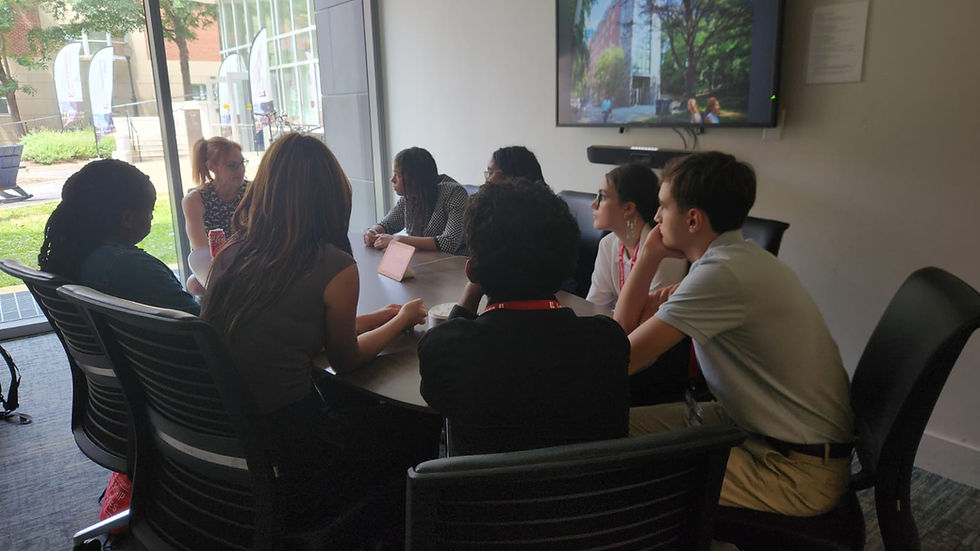Exploring Neurodiversity, Innovation, and Ethics
- Marshall Bailly
- Jul 4, 2025
- 2 min read
Today, we had the incredible opportunity to hear from several leading experts in the field of neuroscience. We began the day with Dr. Wurzman, who gave a compelling lecture on neurodivergency. She explored what it means to be neurotypical versus neurodivergent, and how our understanding of cognitive diversity can shape everything from education to public policy. Her insights helped reframe the conversation around mental and neurological differences, not as deficits, but as meaningful variations in human experience. “1 in 10 people are left-handed. They are part of the neurodivergent community.”

Following that, Dr. Giordano presented on emerging neurotechnologies and their profound implications. His talk made it clear that what once seemed like science fiction and dystopian, is now a reality. From brain-computer interfaces (BCI’s) to neuroweapons, we explored how rapidly advancing technologies are already influencing defense, medicine, and even personal identity. From the DARPA Beetle and DragonflEYE to mind control, Dr. Giordano challenged us to consider how these tools should be governed, and who decides their appropriate use.
After lunch, we were introduced to Dr. Casebeer, who presented us his nonprofit, Beyond Conflict. This organization leverages neuroscience research to assist in conflict resolution and foreign policy. The brain’s mechanisms of trust, empathy, and aggression can play a vital role in diplomatic efforts and international peacebuilding. It was eye-opening to see science being used not just to cure illness, but to promote global harmony.
We closed the day with Dr. Shook, who, after a long day of learning from such great efforts, refreshed our energy and led a discussion on the ethical implications of brain-monitoring technologies. And their use in military and commercial applications, even in education, in our legal system, job interviews, etc. Dr. Shook urged us to ask critical questions about privacy, consent, and long-term societal impact. “The question isn't that it can malfunction; but how do you know it is malfunctioning.” His talk served as a thoughtful reminder that technological innovation must always be paired with ethical reflection.
Overall, today’s sessions offered an inspiring and thought-provoking look at how neuroscience intersects with ethics, policy, and peace. Each speaker emphasized the responsibility that comes with scientific progress, and left us excited to think more deeply about the brain and its role in shaping our world.





Comments